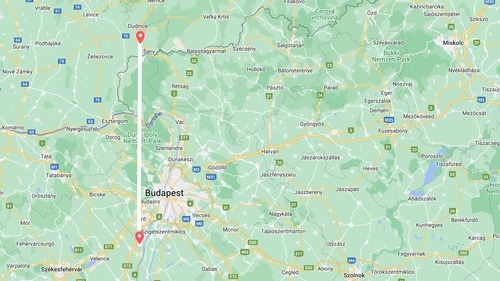
MOL Group and Transpetrol have completed the reconstruction and capacity expansion of the Friendship I/Adria oil pipeline leg between Százhalombatta and Ipolyság in Slovakia. The investment, costing $80m, will allow Hungary, Slovakia, and the Czech Republic to diversify their energy supplies and improve regional energy security. The pipeline's transportation capacity has been increased from 3.5 million tons to 6 million tons per year. MOL Group has also increased the capacity of the Hungarian section of the Adria oil pipeline, connecting the Adriatic Sea with Slovakia, from 10 million tons to 14 million tons per year.
Budapest - MOL Group and Transpetrol finished the reconstruction and capacity expansion of the Friendship I/Adria oil pipeline leg between Százhalombatta and Ipolyság in Slovakia. As a result of this strategic investment, Hungary, Slovakia and the Czech Republic will now be able to further diversify their energy supplies thus significantly improving regional energy security.
In March, 2014, MOL Group and Transpetrol started to fully renovate and increase the capacity of the Friendship I/Adria oil pipeline opened in 1962. The investment was badly needed because the pipeline had become worn out over the years.
In less than one year, the network pipes comprising 7,000 17 metre-long pieces along a 128 km section, starting from Sahy, Slovakia to Tököl (119 km in Hungary and 9 km in Slovakia), were replaced with pipes of larger diameter while sectioning stations were also renovated. Thanks to these the transportation capacity of the pipeline was significantly increased to 6 million tons from 3.5 million tons a year.
The total cost of the investment amounted to USD 80 million.
Besides the reconstruction of Friendship I/Adria pipeline, MOL Group also increased the capacity of the Hungarian section of the Adria oil pipeline, connecting the Adriatic Sea with Slovakia from the present annual 10 million tons to 14 million tons.
This investment is of strategic importance since it enables MOL Group to meet the oil needs of its Bratislava Refinery from the Adriatic. Thus Hungary’s and Slovakia’s security of supply has significantly improved while the degree of their currently one-sided dependence decreases. The section with extended capacity may well contribute to the Czech Republic’s security of supply as well – through this route, Czech refineries can also receive crude oil from a new source.
Sándor Fasimon, COO of MOL Hungary commented: “The reconstruction work was implemented quickly and successfully in less than a year, showing that MOL Group is strongly committed to enhancing the regional security of supply. The reconstruction of the Hungarian and Slovakian sections of Friendship I/Adria was of regional interest. Not only will both countries as well as MOL Group enjoy greater energy security but it will also impact the whole Central European region very favourably.”